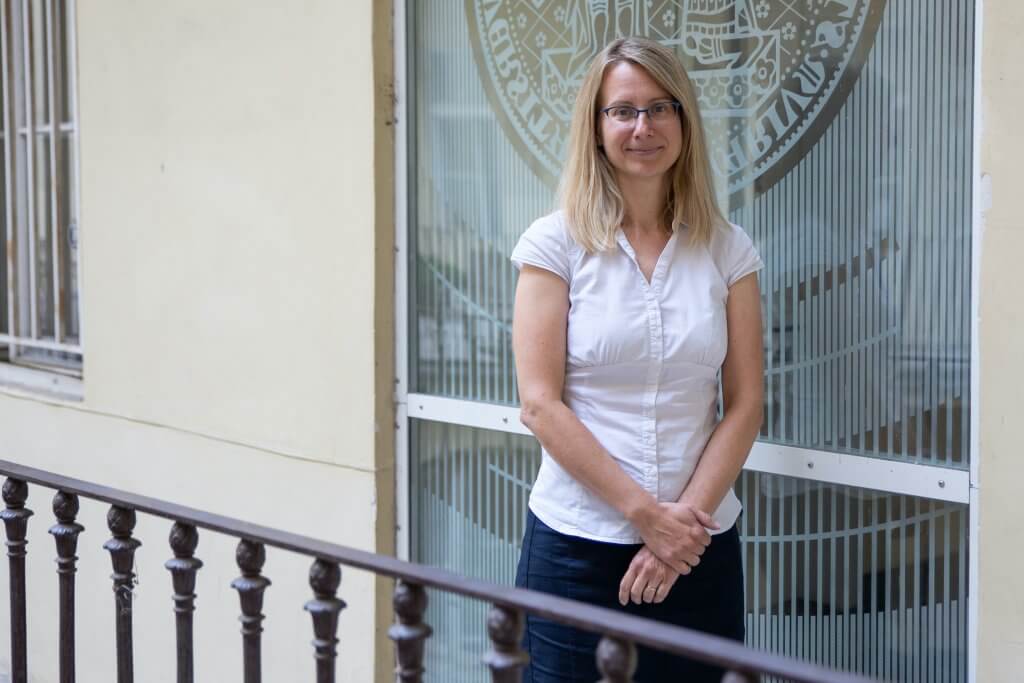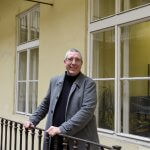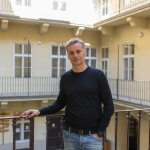Eliška Vejchodská: In terms of altruism, the Czech Republic is far below average, we are among the worst countries in Europe

Are the Czechs trivializing the issue of environmental protection? What influences the low level of altruism in the Czech Republic? And what is the connection between the economy and the environment?
Read the interview with Eliška Vejchodská from the Institute of Sociological Studies FSV UK, who deals with environmental policy, soil protection policy, land policy, urban economics and urban administration. This interview was created as part of the faculty podcast De Facto. This episode is moderated by Alice Němcová Tejkalová.

Alice Němcová Tejkalová (ANT): I would start with the relationship between economics and ecology. We are the country of Václav Klaus, who was here for a long time as Minister of Finance, Prime Minister, and President, and his relationship to the environment, environmental protection, and ecology was so specific. I think that it affected the public environment a lot – here in our country it is too pessimistic. What is the relationship between economy and ecology?
Eliška Vejchodská (EV): The economy has a much more positive relationship with the environment. Economics is a very relevant field, because it is not only the science of something that people normally think of when talking about economics – i.e. finance. It is precisely the science of the allocation of scarce resources, how we will deal with those precious resources. And it is economics that can answer the question of why the environment is being damaged from a socio-scientific perspective. And because economics doesn’t want to stay only on that pessimistic level, it is also looking for some optimistic ways – what can be done to make some kind of correction so that we can effectively protect the environment.
ANT: And what is Czech society’s approach to environmental protection?
EV: I would follow up on what you said in connection with the influence of former president Václav Klaus on the entire societal discourse. During his tenure, he trivialized the problem of environmental protection, trivialized climate change, threw dirt on the non-profit sector, and by that he did a great evil in Czech society, which I think continues to this day. If we were to look at international research that compares the level of altruism, the level of how people want to contribute to non-profit purposes and companies, the Czech Republic is well below the average, it is among the worst countries in Europe, if not worldwide.
For example, we cannot rely only on the state and its public policy, on the commercial sector for environmental protection, but we also need a strong civil sector, which the Czech Republic should strengthen.
In this context, I would add that people believe that they are still poor. This is related to the fact that they don’t want to donate much, they mainly need to saturate their own needs. Perhaps that is part of the story of why we show such low altruism internationally. And it would be worth mentioning that we are not as miserable as we think. We have wonderful public services here that the public sector provides and we don’t have to pay for them out of our own money. For example, that kindergartens take care of small children. A woman can go to work, we have school clubs, we have quality education that does not have to be paid for.
ANT: Especially in the younger generation, there are a lot of people who are passionate about wanting to change the current setting, who want to take care of the world around them more considerately. A whole range of interesting activities arises, forests are cleaned, ponds and waterways are cleaned. It seems to me that people want to live in a better environment than it was before.
EV: Yes, I also perceive it, I feel that we are probably waking up a little after the time of socialism, when people were used to the fact that everything had to be arranged by the state. And now people are slowly getting used to the fact that they also have to take care of something themselves. And I very much welcome this, and I think that we will gradually break out of that past. As I spoke about the fact that we do not donate enough, it is a systematic problem of Eastern Europe and it is the legacy of communism.
ANT: What do you think is the biggest problem with current environmental policy?
EV: It depends if you’re asking what’s a policy issue or what’s an environmental issue? If the latter, then it is climate change that is occurring, the consequences of which we cannot yet fully see, and also the loss of biodiversity. These are two important topics that we should be concerned about. For example, I was very concerned that, for example, the plant composition is changing in the Czech Republic.
In my opinion, we should urgently deal with whether politics effectively addresses these issues or not. I am very happy that we are part of the European Union, which as a whole looks at these topics and the Czech Republic is therefore forced to do something about it.
ANT: You are now cooperating with foreign colleagues, if you compare your research with other countries, what do we lack in the field and what are we good at in your fields that you focus on?
EV: I believe that the social sciences have a more difficult time in the Czech Republic after the time of socialism, because during socialism big personalities were not allowed here, it was not possible to develop the science of how the market works, when there was none here. In this respect, it is amazing that many names were built in the nineties and many doctoral students can outgrow even their teachers. And we need students to outgrow us to get there.


